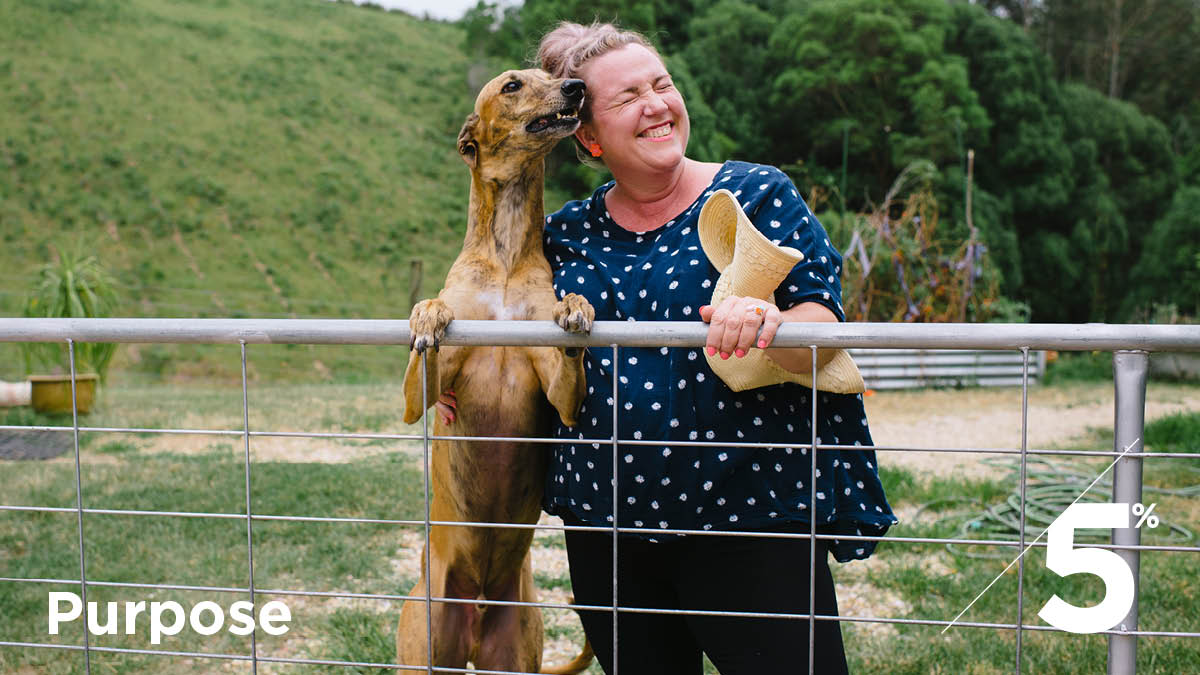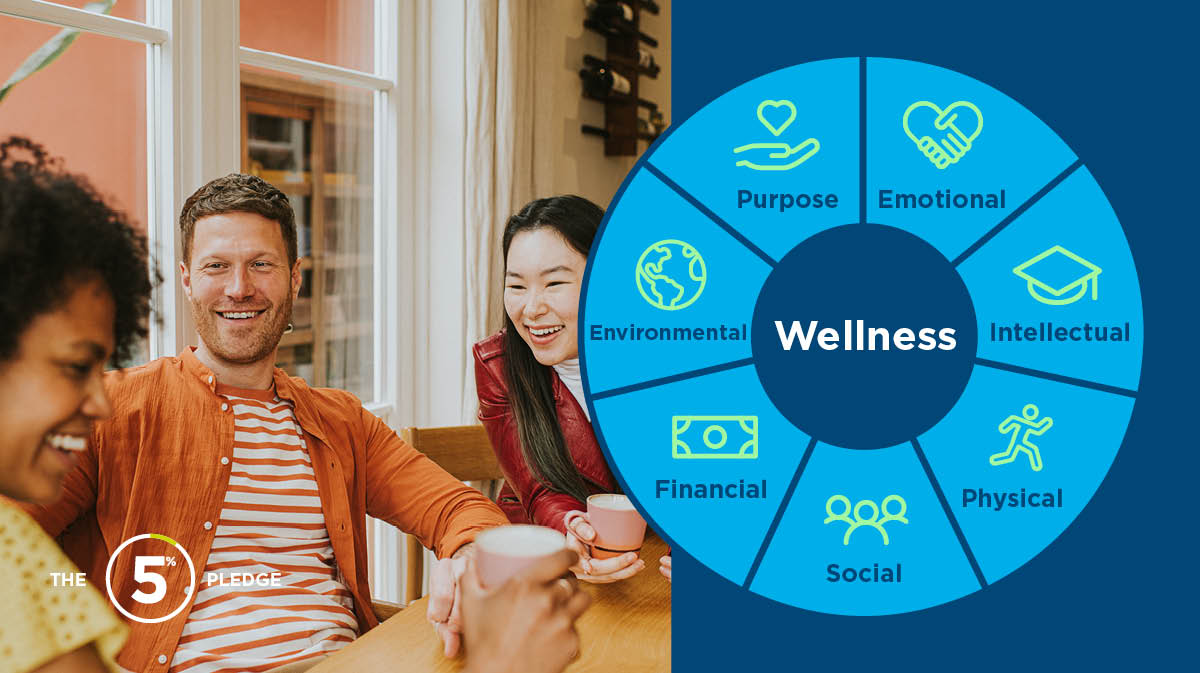PRESS PLAY TO LISTEN TO THIS ARTICLE
Voiced by artificial intelligence.
Wellness encompasses many lifestyle elements, from physical and emotional health, finding purpose in daily work and supporting the community and the environment. Each dimension is intertwined, they support and influence each other. If one is lacking, it can impact our overall health, attitude, and productivity. Here we explore these interconnected dimensions: Emotional, Environmental, Financial, Social, Intellectual, Physical, and Purpose.

Emotional wellness means being attuned to your feelings, thoughts, and behaviours. Being able to express emotions effectively, adjust to emotional challenges, cope with life stressors, and enjoy life despite its inevitable disappointments and frustrations. The ability to understand and share feelings of anger, fear, sadness, stress, hope, love, joy, and happiness in a productive manner contributes significantly to our emotional wellness. Emotionally ‘well’ people acknowledge their emotions, understand their source, and harness them to move forward productively.

The second dimension, environmental wellness, refers to leading a lifestyle that respects our surroundings and takes a personal responsibility to protect the environment. Being aware of the dynamic interaction between our surroundings and us and understanding the crucial role we play in preserving, protecting, and improving environmental conditions. An environmentally well individual recognises their responsibility to the environment and appreciates the interconnectedness of nature and individuals.

Financial wellness is about being comfortable with where your money comes from and where it is going. It involves learning how to successfully manage financial expenses to ensure you can live comfortably today and plan for tomorrow. A financially healthy person is aware of their financial state, budgets their resources wisely, saves for the future as well as for potential emergencies, and understands the role that money plays in their life and overall wellness.

Social wellness emphasises the importance of interaction and relationships with others. It’s about building healthy, nurturing, supportive relationships and fostering genuine connections with those around you. This includes having a strong social network that provides support during times of need but also allows for the joy of sharing triumphs and successes. Socially healthy individuals acknowledge the need for companionship, communicate effectively, respect themselves and others, and create a support system that includes family members and friends.

Intellectual wellness pertains to maintaining an active mind, continuously expanding knowledge and skills, and engaging in creative and mentally stimulating activities. Intellectually well individuals are curious, seek personal growth, and are open to new ideas and experiences. They engage in lifelong learning not only for personal benefit but also for societal contribution.

Physical wellness, perhaps the most widely recognised dimension, is about respecting and caring for your body through regular physical activity, healthy eating, adequate sleep, and proper healthcare. Being physically well means maintaining a healthy quality of life that allows you to get through daily activities without undue fatigue or physical stress. It is also about recognising the important connection between physical health and mental well-being.

The final dimension of wellness, purpose, refers to discovering and achieving personally meaningful life goals. Having a clear sense of purpose can profoundly impact your life, giving direction and fostering a sense of peace, prosperity, and satisfaction. A person with a strong sense of purpose often leads a life full of passion and inspiration, as they are motivated by their unique personal aspirations and values. They are likely to pursue interests and hobbies, dedicate time to fulfilling activities, and contribute meaningfully to society. Their purpose can be a guide when it comes to decision making, and it can foster resilience in the face of adversity. When we align our daily activities, including work, with our personal purpose, we take steps towards a life filled with passion, contentment, and joy.
These seven dimensions require balance and connection for a harmonious, healthy life. Ignoring one area can cause a knock-on effect, resulting in other areas suffering. For instance, financial stress can cause emotional distress, leading to physical health issues. On the other hand, a strong sense of purpose can foster resilience, positively affecting emotional wellness and thus benefiting social relationships and physical health.
It's not about perfection in each dimension, rather the goal is to find a personal harmony with the dimensions that works for the individual, enabling them to maintain a quality of life that is most conducive to overall well-being.
Wellness is a journey of continuous growth and improvement; the key is to take small steps every day towards improving each area. The more individuals consider these dimensions in daily life, the better they’ll be able to cope with challenges and the more fulfilled they’ll feel. This holistic approach to health and wellness ensures that you are not just surviving but thriving.
